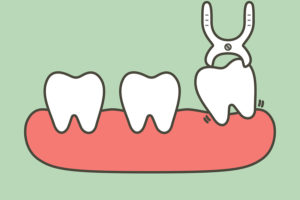 Has your dentist referred you to an oral surgeon for wisdom teeth removal? If so, it is likely for good reason. Even if your wisdom teeth aren’t bothering you now, their presence could lead to serious oral health complications in the future.
Has your dentist referred you to an oral surgeon for wisdom teeth removal? If so, it is likely for good reason. Even if your wisdom teeth aren’t bothering you now, their presence could lead to serious oral health complications in the future.
Following are some reasons why wisdom teeth extractions can preserve your oral health and quality of life.
Wisdom Teeth Tend to Become Impacted
Wisdom teeth are a third set of molars that erupt during early adulthood. Since the rest of a person’s teeth are well-established, there is little room for third molars to erupt upright. Lack of room for wisdom teeth means that third molars can become impacted – or stuck – in the jawbone and/or gums.
Impacted teeth can become angled horizontally and towards other teeth or the back of the mouth. This can affect the health of other teeth, the bone, and contribute to orofacial pain.
Third Molars Often Become Infected
Impacted teeth sometimes partially erupt, too. If a wisdom tooth is partially erupted, it’s often difficult to keep clean. Partially erupted molars tend to have pockets of tissue around them where food and plaque can accumulate, increasing the risk for infection. It’s not uncommon for wisdom teeth to develop painful abscesses.
Removing wisdom teeth, especially ones that are partially erupted, eliminates the threat of third molar infections and reduces the risk of gingival inflammation.
Wisdom Tooth Retention Contributes to Facial Pain and Headaches
Since the arrival of wisdom teeth creates crowded dentition, patients who keep their wisdom teeth can suffer with facial pain and headaches. In some cases, a person with wisdom teeth might even develop TMJ disorder. TMJ disorder is a painful condition that impairs oral function and consists of frequent facial discomfort.
Removing wisdom teeth now can reduce your risks for oral health conditions and improve your quality of life. If you would like to schedule a consultation with our oral surgeon, Dr. Robert Peak, call our practice at your convenience.





